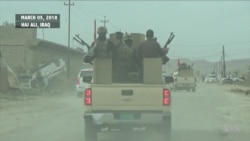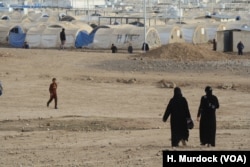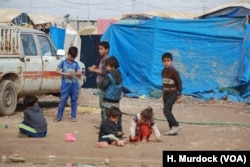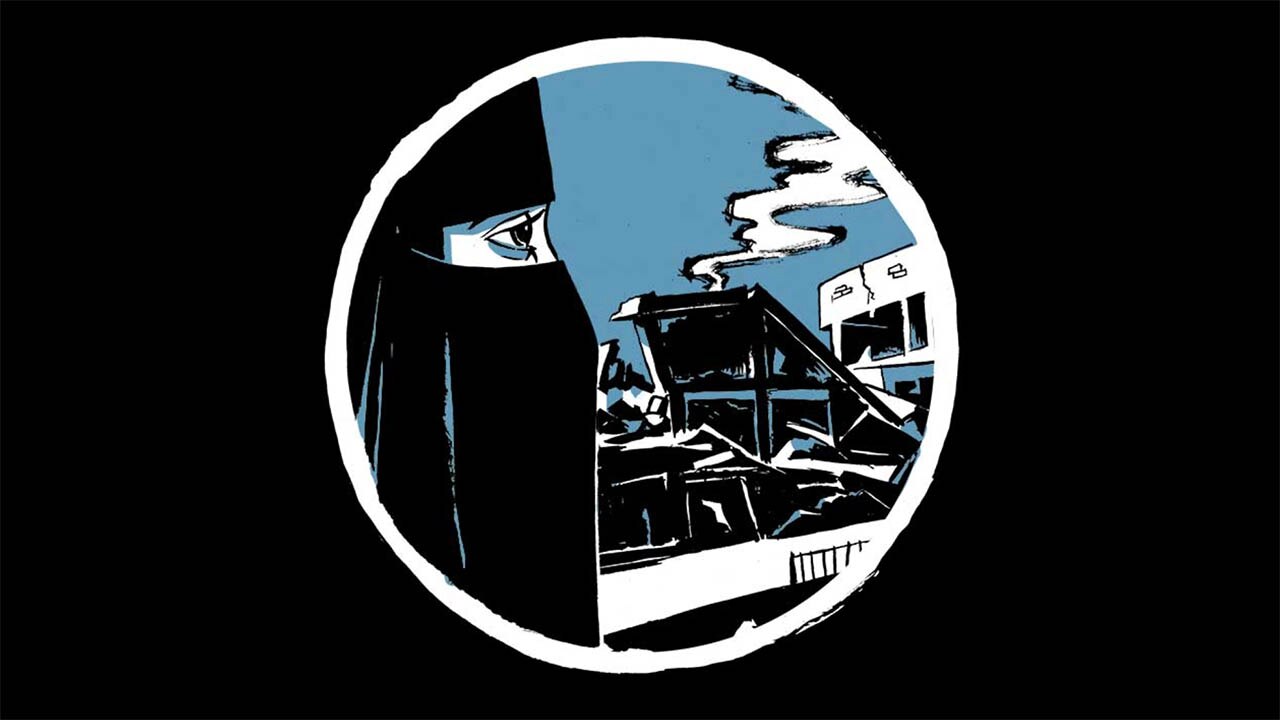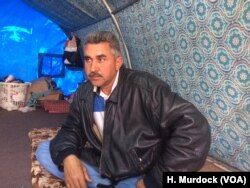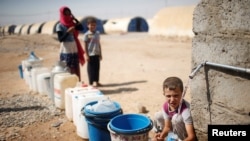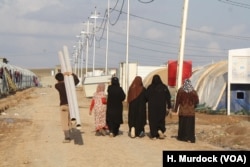“They kicked us out of our home and stole our furniture and valuables,” said Rugya Saleem, a mother of six, plucking at the carpet of the tent in a desert refugee camp.
She said her husband was forced to join Islamic State militants, and then was later killed by victims of the group. “They said our things belonged to IS. But they didn’t. It was all we had.”
Going home again, she added, is not an option. Like many other people across northern Iraq, she fled her home recently, months after Iraq’s battle with IS militants was declared victorious. And while people are returning to their homes in droves, in many camps, the population is growing.
It's not just the families of captured or killed IS militants being forced to flee their homes. The majority of the newly displaced are fleeing extreme poverty and desolate, destroyed houses without electricity or water, according to Ardalan Maroof, a camp manager for the International Organization for Migration in northern Iraq.
In recent weeks, Maroof said, hundreds of people have been arriving at his camp daily, and, on average, less than half the number of people depart. Other northern camps, he said, have reported similar numbers.
“It’s mostly financial problems, lack of services and security problems,” he explained. “Many families are scared for their lives.”
Children of IS
For the children of IS in camps, the confusion was palatable. All born of dead or gone fathers, they appeared grief-stricken when asked, but seemed genuinely confused as they thought of what to say.
Adults speak only poorly of IS in public and children try to follow suit; yet, they often have very little understanding of what exactly their fathers did, and it is rarely discussed.
“They don’t talk about it,” said Reem, 13, whose father was an IS member killed by local forces. “They tell us that IS was bad and you should never think that way. But we didn’t say it was good.”
She doesn’t know why her father joined IS, or what he did for them. “He didn’t tell me, and I didn’t ask,” she said. What she did know about her dad was that he loved spending time with her and her siblings. “He took us everywhere,” she added, with some reluctance.
The Iraqi government says tens of thousands of IS fighters have been captured or killed in the past year-and-a-half, but the majority of their wives and children committed no crimes.
In a country that has been at war for 15 years, communities often blame entire families for the crimes of individual members who were violent extremists. And aid workers say large-scale recovery programs for children of IS members could create a violent backlash.
Mental health care in Iraq is also lacking professionals and shrouded in stigma, according to Doctors Without Borders.
Some children at the camp defended their fathers, saying they were never extremists like others they saw. Others grew tearful when asked about their fathers, and said nothing.
“Do you want revenge on the security forces who killed your father?” asked Hatam Mohammad, a local community leader, to Ahmed, an 11-year-old, son of an IS member who may be in jail, but is presumed dead by his family.
Ahmed ducked his head, but appeared to already have thought about this question.
“I want my father back,” he said. “But I don’t want revenge on the Iraqi forces. Only on the person who killed him.”
Priority is closure
In December 2017, families displaced by the IS battle began to leave camps en masse.
During the course of the three-year battle, nearly 6 million people fled their homes in Iraq, and now 3.3 million have returned, according to a report published last week by the Danish Refugee Council, the International Rescue Committee and the Norwegian Refugee Council.
Some families leave camps because of poor living conditions or incentives, the report said.
“Others are not allowed to choose,” it reads. “They have been coerced or forced to return against their will. Some have been blocked from returning, or evicted and displaced once more when they finally return to their areas of origin.”
Nearly 9,000 people in northern Iraq were evicted from camps in western Iraq in November and December 2017, according to the report.
And some relatives of IS fighters in northern camps said they would never return to their homes by choice. “This is the only safe place,” said Faiza Ahmed Khalef, a mother of five, who believes her husband, an IS fighter, is in jail. “Here, no one harasses us.”
Aid workers say the government has made planning the closure of the camps a high priority since the war ended. If cities, towns and villages were provided more services and humanitarian aid, it would go a long way to encouraging some families to return, added Maroof, the camp manager.
“We will stay as long as the people stay,” he said. “But we need a plan to facilitate the people’s return.”




